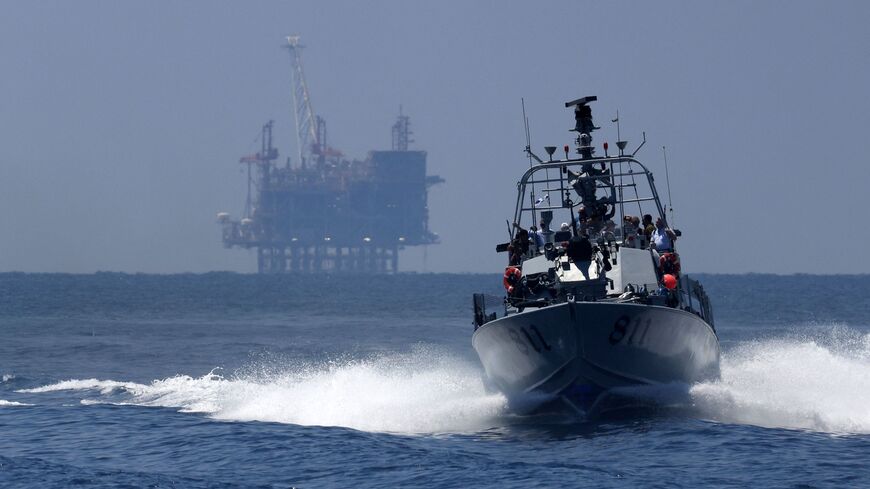Turkish President Recep Tayyip Erdogan has raised the prospect of normalizing ties with Israel, saying that Ankara is ready to discuss an alternative gas pipeline after the United States rescinded support for a planned conduit to carry Israeli gas to Europe via Cyprus and Greece.
In remarks to reporters Jan. 18, Erdogan noted that feasibility concerns forced Washington to backpedal on the Eastern Mediterranean Pipeline Project (EastMed), arguing that Turkey was the only viable route for Israeli gas sales to Europe. “This cannot happen without Turkey,” he said, recalling that Turkish and Israeli officials held talks on the issue several years ago. Now, “We can sit down and discuss the conditions,” he said, adding that Israeli President Isaac Herzog might visit Turkey soon.
The EastMed project, based on an accord signed between Israel, Greece and the Greek Cypriots in January 2020, envisions a 1,900-kilometer pipeline, running from Israel to Cyprus and then to Greece and Italy, with a capacity of 10 billion cubic meters per year at a cost of some 7 billion euros ($7.9 billion). US support was crucial for the project, touted as an effort to reduce the European Union’s gas reliance on Russia. Yet question marks have hovered over the route and cost of the planned conduit. Washington’s decision to withdraw its support stemmed from similar concerns about cost, in addition to environmental and geopolitical considerations.
Indeed, the project appears too costly given its relatively small capacity. The Nord Stream 2 pipeline from Russia to Germany, for instance, has a capacity of 55 billion cubic meters per year and was built at a cost of some $10 billion. Meanwhile, after the change of guard at the White House last year, Washington now prioritizes renewable energy sources. Finally, given Turkey’s exclusion from the EastMed project and other energy-focused alliances in the region, Washington’s move is a tacit admission that the project has become too politically fraught in a region where tensions are already high over gas exploration and territorial rights.
All those caveats have now allowed Erdogan to promote a role for Turkey, eyeing both economic and political dividends. His move meshes with Turkey’s efforts since last year to normalize ties with regional rivals. Ankara launched fence-mending talks with Cairo in May, while renewed dialogue with the United Arab Emirates culminated in a reconciliation visit by the Abu Dhabi crown prince in November. Erdogan is also expected to visit Saudi Arabia next month.
There have been signs of a thaw with Israel as well. The once-close relations collapsed in 2010 over a deadly Israeli raid on a Gaza-bound ferry full of pro-Palestinian Turkish activists. A normalization initiative in 2016 led to talks on energy cooperation, including the prospect of a pipeline. Yet ensuing political tensions resulted in a fresh rupture that has left the two countries without ambassadors since 2018.
In November, however, many were surprised when the detention of two Israeli tourists in Istanbul on espionage charges did not blow up into a crisis. The relatively quick release of the couple, followed by a phone call between Erdogan and Herzog, showed there is ground for improvement.
Now, can Israeli gas bring the two countries together?
That may indeed be a major issue in a prospective Erdogan-Herzog meeting, but thorny political issues remain, including Ankara’s support for the Palestinian cause and Israeli demands that Turkey stop harboring Hamas leaders.
On the energy front, Israeli sources emphasize that rapprochement with Ankara will not come at the expense of Israel’s alliance with Greece and the Greek Cypriots. The most reasonable option for Ankara seems to be to propose a pipeline between Israel and Turkey, leaving aside the issue of maritime economic zones involving the Greek Cypriots. Turkey’s annual gas consumption amounts to nearly 60 billion cubic meters, and Azerbaijan, Iran and Russia are currently its main suppliers through a number of pipelines, in addition to smaller liquefied natural gas (LNG) purchases from Algeria.
Besides economic impacts, a gas conduit might ease Turkey’s political isolation in the Eastern Mediterranean. Ankara appears to have stepped back from its confrontational posture to avoid further trouble with the EU, but remains excluded from regional partnerships such as the East Mediterranean Gas Forum. The Cairo-based organization brings together Cyprus, Greece, Egypt, France, Italy, Israel, Jordan and the Palestinians, with the United States and the EU taking part as observers. Rapprochement with Israel may not secure Turkey’s inclusion in the forum, but would certainly ease its isolation.
